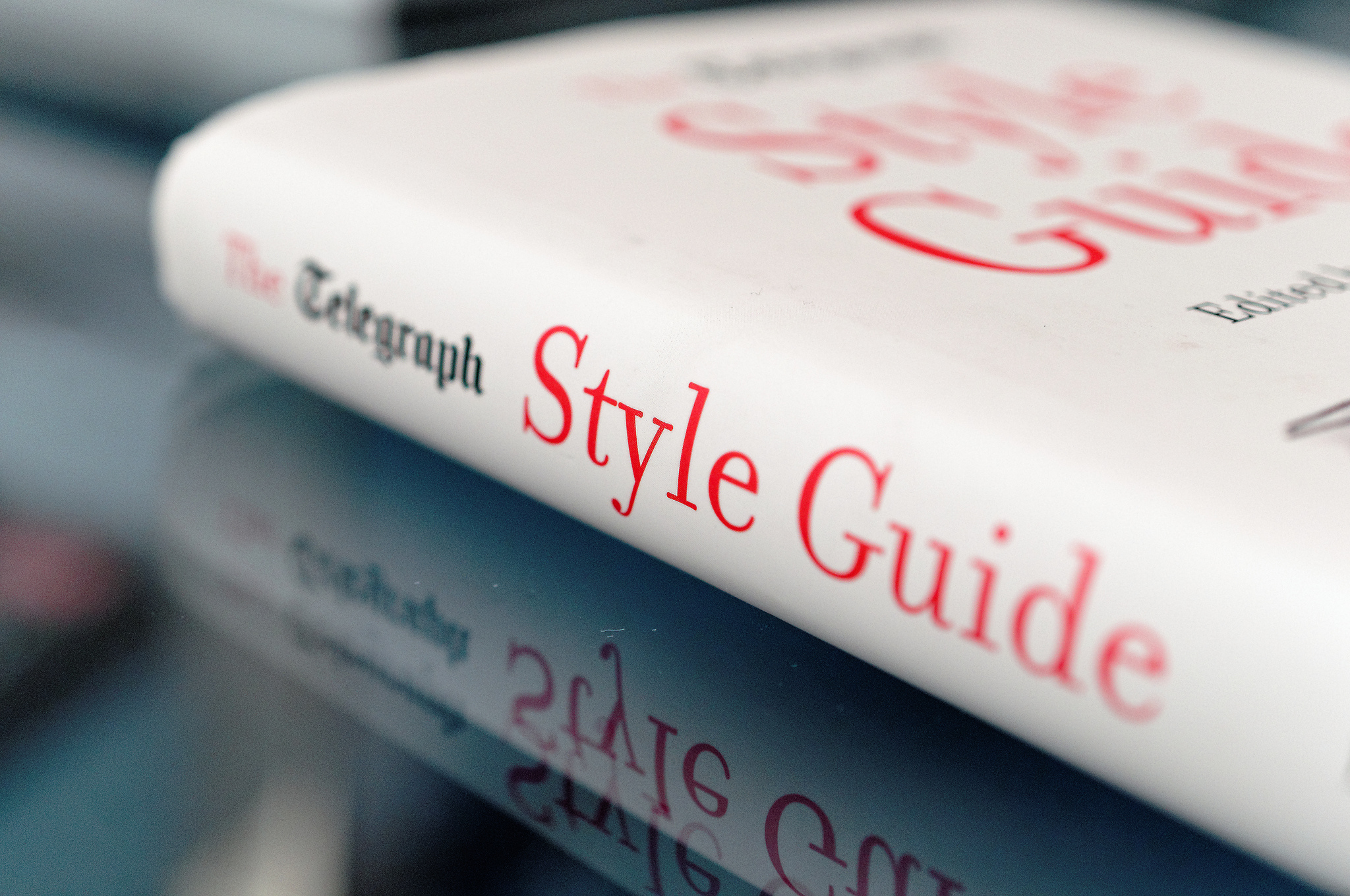It is a dilemma experienced by every brand. You know the written content that your company produces needs to be consistent, but the quantity of content required means that you’re employing multiple writers to work on it. So how do you ensure everyone is (ahem) on the same page? The answer is easy: by creating your own style guide.
We look at why style guides are essential for all companies – and why they are particularly vital for travel brands.

When it comes to style guides, it’s okay to borrow from other publications
What is a style guide?
A style guide is a list of rules about what’s acceptable for your brand and what just won’t fly. It’s the final word on serial commas, italics, capitalisation and exclamation marks – and on how many spaces should follow a full stop.
Most style guides offer guidelines for all sorts of thorny style and grammar issues, such as when to use an ‘en dash’ or when to employ the tricky semicolon. (Who knew a comma-dot combo could cause so much angst?)
And then there are the controversial questions, the ones that ignite heated debate among copy editors and send the blood of grammar nuts up to boiling point. For example, whether it should be ‘e-mail’ or ’email’, or whether you allow the use of the word ‘like’ as a conjunction. Or whether it is acceptable to begin a sentence with ‘or’.
It’s easy to jest about how seriously we take these often-trivial grammar matters and punctuation concerns, but when it comes to your travel company, a style guide is no joke. For most brands, it’s incredibly useful. In written travel content — where foreign place names, ships, dates, titles and translations are all common — it’s essential.
At World Words, we write for all kinds of travel clients, producing everything from destination guides to feature articles, blog posts to web copy, and we really appreciate the value of a style guide for our clients. Here’s why.

Should that be ‘Derry’ or ‘Londonderry’?
Why do I need a style guide?
First and foremost, style guides save time. Instead of having your editorial team waste minutes (or even hours) debating the ins and outs of whether they should write ‘Kiyomizu-dera’ or ‘Kiyomizudera’, or whether to go with ‘Myanmar’ or ‘Burma’ – or even ‘Myanmar (Burma)’ – they can easily and quickly reference the style guide.
It also helps your brand remain consistent. While you might get away with the odd spelling variation or conflicting punctuation, it doesn’t take long before you audience starts to pick up on repeated errors. These inconsistencies not only look sloppy, they also have a habit of making your readers stumble, pulling them out of your otherwise engaging travel story. A style guide ensures that every writer knows whether to use a colon or a semi-colon.
And then there’s tone. The key to building trust with clients is creating a brand ‘voice’, used throughout all forms of marketing and communication, including written content – and the key to controlling this is a style guide (combined with solid editing of course). Having a consistent voice gives an impression of honesty, solidity and authenticity — all of which are a must in travel writing.
Inconsistency, on the other hand, can be extremely disconcerting. Nothing is more jarring than a brand that see-saws between formal and teen slang in the space of a paragraph. It’s the same in real life: if a respected politician was to start throwing out the occasional ‘YOLO’ and talking about his ‘swag’, you’d probably question his competency and perhaps his mental well-being.
If you’re producing online travel content, style guides can also help with SEO. Forcing your writers to jam keywords into perfectly good prose is generally not a good idea, but you can suggest certain standard terms to use where possible, or provide guidelines for writing SEO-friendly headlines.

What’s your stance on exclamation marks?
How can I create a style guide?
When creating a style guide for your travel brand, the good news is you don’t have to start from scratch. You can borrow from the big guns, who have been kind enough to share their style guides online. They don’t necessarily have to be style guides for travel-specific publications either, as many of them still address travel writing issues.
Within the UK, there’s The Guardian and Observer Style Guide, the BBC News Style Guide and The Economist Style Guide, while in the US there’s The Chicago Manual of Style, the Associated Press Stylebook and The New York Times Manual of Style and Usage. If you do require a travel-focused guide, there’s the National Geographic Style Manual (US English). You can use any of these guides as a template, adding and adjusting as you see fit.
In terms of grammar, you might want to decide what rules can and can’t be broken. (See here for eight stuffy grammar rules we think you can break). It’s worth defining, at least broadly, what sort of tone you want your written travel content to achieve, whether warm or clinical, professional or chatty, instructional or inspiring, or somewhere in between. You may wish to address whether you want to use contractions or whether there are certain overused words or phrases you want to avoid, such as our dirty dozen of travel writing clichés.
There’s a lot to consider, but you don’t have to answer all these questions straight away. Remember, a style guide is a work constantly in progress. It’s subject to change with the changing times and can be built upon and added to each time you encounter a new style issue. The key is to make sure all your writers have the latest version of your style guide; that way, you can rest assured that all of the content you produce will be perfectly on-brand.
What style guides would you recommend? Let us know on Twitter. To read some of World Words‘ own written travel content, see our latest projects – and keep your eye on this blog for regular expert travel writing advice.
—
This is an updated version of an article originally published on the World Words blog in October 2014. Read the original here. Blog image credits: Style guide image courtesy of Dave Crosby (Flickr); Derry-Londonderry image courtesy of Nicolas Raymond (Flickr); Question mark/exclamation point image courtesy of Horia Varlan (Flickr).

Pingback: Proofreading 101 - World Words